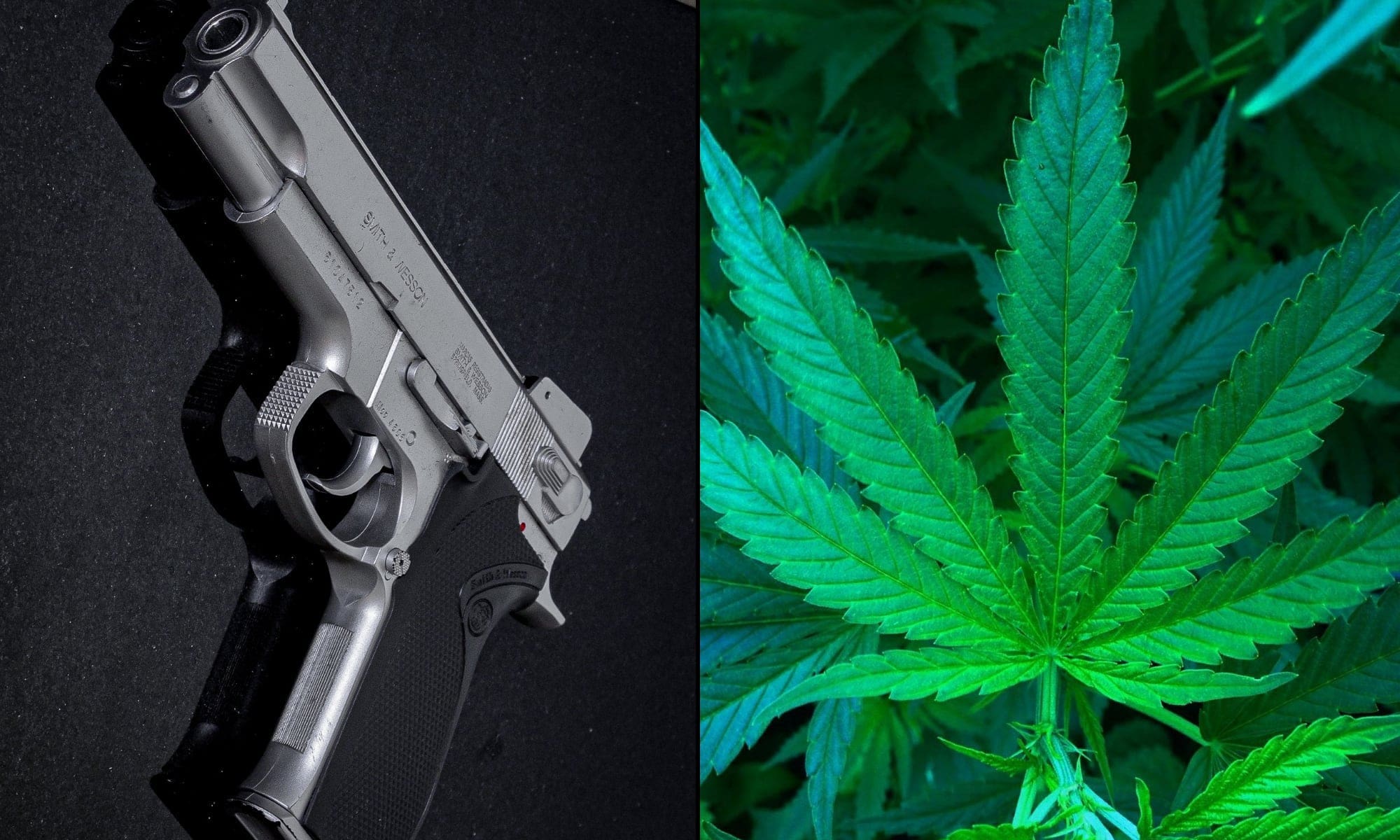Politics
Justice Department Makes ‘Startling And Dangerous’ Claims To Defend Medical Marijuana Patient Gun Ban, Attorneys Say In New Filing

The federal government is relying on “startling and dangerous” arguments to defend banning medical marijuana patients from owning firearms, attorneys argued in their latest filing in an ongoing federal appeals case.
Weeks after the Justice Department submitted its brief to the court, asserting that lifting the ban would have “wide-ranging” unintended consequences, attorneys representing Florida medical cannabis patients filed their response last week, disputing the government’s position point-by-point.
Many of the areas of legal disagreement are familiar to those who’ve followed the case over the past year. Plaintiffs are asking the U.S. Court of Appeals for the Eleventh Circuit to overturn a federal district court’s decision to dismiss the lawsuit, maintaining that the gun ban for state-legal marijuana patients is unconstitutional and inconsistent with recent U.S. Supreme Court precedent.
In the court’s ruling in that separate case out of New York, justices generally created a higher standard for policies that seek to impose restrictions on gun rights. The ruling states that any such restrictions must be consistent with the historical context of the Second Amendment’s original 1791 ratification.
DOJ has approached the case from a number of angles, including some that caught headlines for comparing medical cannabis patients to people who are mentally ill, panhandlers, Catholics and other groups that were previously deprived of the right to possess firearms.
Most recently, the Justice Department said that allowing medical marijuana patients to have guns could undermine the government’s ability to restrict firearm ownership by people who are addicted to controlled substances like fentanyl, cocaine and methamphetamine.
In their response brief last week, the plaintiffs pushed back on that line of argument.
“Likely realizing the lack of historical support for their position as applied to state law-compliant medical marijuana users, the Appellees attempt to lump such use in with more serious and dangerous substances such as cocaine, heroin, fentanyl, and methamphetamines,” they said.
“They seemingly hope that potentially permitting such fully illicit drug users to possess or purchase firearms will dissuade the Court from siding with the Appellants,” the brief says. However, that ignores the fact that, unlike cannabis, possession of those other substances can constitute a felony that could warrant gun restrictions.
DOJ has also routinely dismissed arguments about the relevance of unique federal cannabis policy considerations, like the long-standing congressional rider that’s prevented the department from using its funds to interfere in the implementation of state medical marijuana laws.
“Whatever Congress’ policy rationale for creating its ‘half-in, half-out’ marijuana policy, the Court should decline to simply ignore this substantial distinction in considering whether the Challenged Laws are “comparably justified” to historical criminal regulations,” the plaintiffs said.
They also said the Justice Department makes a “startling and dangerous contention” that, because the plaintiffs have possessed cannabis multiple times, those would-be misdemeanor offenses would rise to a felony justifying the loss of Second Amendment rights—even though they haven’t been prosecuted for the offenses.
“They argue that, to the extent [plaintiffs] have used marijuana multiple times, they are actually repeat offenders who have committed what is equivalent to felony offenses,” the brief says. “However, as the laws the Appellees rely upon clearly show, it is a prior conviction for marijuana possession, not repeated use, which can render such an act a felony.”
“Essentially, the Appellees invite the Court to categorize [the plaintiffs] as having been arrested, prosecuted, and convicted of a crime even if none of that has occurred,” it says. “Beyond being completely anti-textual, this argument should be frightening to anyone concerned with basic due process and the protections of law.”
Now both parties will wait to see whether the court will schedule oral arguments in the case—a step that the Justice Department recently said it supports, seemingly acknowledging the novelty and significance of the legal challenge.
Former Florida Agriculture Commissioner Nikki Fried (D), who now serves as chairwoman of the Florida Democratic Party, first raised the lawsuit against DOJ last year in her capacity as a state official. She’s no longer party to the lawsuit since leaving office, and her GOP successor has declined to get involved.
Relevant to the case at hand is the fact that a separate federal court ruled in February that the firearms ban for any cannabis consumer is unconstitutional. The government has since appealed that decision by the U.S. District Court for the Western District of Oklahoma to the U.S. Court of Appeals for the Tenth Circuit.
Attorneys in the Florida case also submitted a notice of supplemental authority on Friday that cites a development in yet another related federal lawsuit.
They advised the court that, in the new case, the U.S. District Court for the Western District of Texas granted a motion finding that a person’s admission to misdemeanor marijuana activity “was not sufficient to place her within the class of persons who could be historically disarmed for being non-‘law abiding.'”
Ultimately, the judge determined that the federal ban prohibiting people who use marijuana from possessing, transferring or selling firearms is unconstitutional.
“These findings and conclusion mirror several positions the Appellants have advanced in the present matter,” the supplemental notice says.
Advocates have argued that the fight to end the federal ban for cannabis consumers isn’t about expanding gun rights, per se. Rather, it’s a matter of constitutionality and public safety.
Supporters of the Florida lawsuit have argued that the Alcohol, Tobacco, Firearms, and Explosives Bureau (ATF) requirement effectively creates an incentive for cannabis consumers to either lie on the form, buy a gun on the illicit market or simply forgo their right to bear arms.
In 2020, ATF issued an advisory specifically targeting Michigan that requires gun sellers to conduct federal background checks on all unlicensed gun buyers because it said the state’s cannabis laws had enabled “habitual marijuana users” and other disqualified individuals to obtain firearms illegally.
Read the latest filings in the medical marijuana patients’ gun rights case below:
Marijuana Equity Advocates Release ‘Anti-Monopoly Toolkit’ To Shape Legalization Laws
















